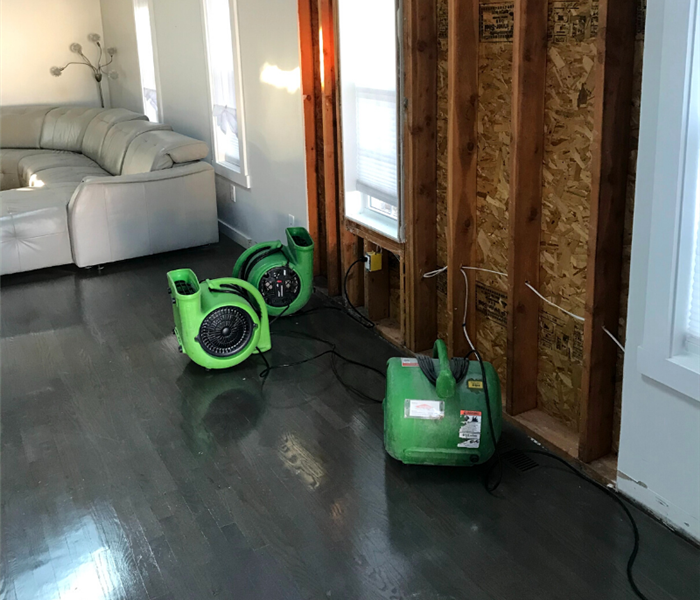Top Causes of Water Damage in Your HomePosted by Emily Griffin on February 23rd, 2021 It's easy to forget all the possible causes of water damage in your home. We're so used to having water flowing through pipes, gutters, and off of our roofs, so it's something that's usually not at the top of our minds. Here, we will review the top causes of water damage in your home so that you can better prevent a water disaster.
1. Frozen PipesWhen pipes freeze, they become at risk for bursting and pouring out thousands of gallons of water out into your home. The water in frozen pipes expands and exerts pressure on the pipe, causing it to eventually burst. This can cause problems with pipes in other parts of your home as the water pressure of your plumbing system will be thrown off. You can prevent water damage in New Jeresy from frozen pipes by making sure to insulate bare pipes, opening cabinets when its cold, or winterizing pipes that aren’t used in the winter. 2. Plumbing ProblemsPlumbing issues can cause damage to your home in many ways. Leaky pipes under sinks can cause a mess to clean up and even cause mold to grow. These problems become more serious when old or deteriorating pipes behind walls begin to leak, as they are out of your sight. Most of the time this cause of water damage isn’t caught until it has already created an extensive amount of damage to your home – Warping walls, buckling floors or ceilings, or causing paint to become bubbled or discolored. 3. AppliancesAny appliances that have water lines are at risk of leaking and causing water damage to your home. This can include dishwashers, ice makers, or even washing machines. When these hoses or water lines become loose or wear out over time, they can slowly leak and affect walls, floors, or ceilings in your home. 4. Water Heaters & FurnacesThese causes of water damage are like leaking or old appliances, but they usually cause much more damage. When your water heater or furnace lets go, they can pour all of their water out into your home. Depending on what floor your water heater is located on, this damage can be spread across multiple floors of your home. Water heaters can hold 50-100 gallons of water and will continue to pour it out until the water is turned off. 5. Clogged DrainsHair, grease, dirt, toiletries, or things that shouldn’t have been put down a drain can cause them to clog. When you don’t realize and the water is left running, you can end up with an overflowing bathtub or sink. Although the water from a clogged drain may seem easy to clean up yourself, depending on how long it overflowed, water can flow through the floor and out the ceiling below. 6. Severe WeatherWhen heavy rains, thunderstorms, or other natural disasters blow through your area, they can end up causing water damage to your home in multiple ways. Severe weather can cause roof leaks, a flooded basement, or flash flooding that affects your entire home. 7. HVAC SystemWhile working, your AC system produces condensation that drips from the evaporator coil into a drainage pan which then flows through a condensate drain line out of your home. When the drain pan is damaged, water will begin to leak where it is not supposed to. If the condensate drain line becomes clogged with dirt or other debris, it won’t be able to drain the pan and will cause it to overflow. Depending on where these components of your HVAC system are located, you can end up with a flooded basement or a water leak affecting every floor of your home. 8. Clogged GuttersClogged gutters can cause many more issues than most homeowners would think. When your gutter system is clogged, it can lead to roof leaks, water seepage behind your siding, foundation damage, and even flooded basements. This is because water is not properly drained away from your home. Water overflowing from gutters flows along the siding of your home, directly to the foundation below, and increases the level of groundwater. 9. Sewer BackupsWhen your main sewer line is blocked or heavy rains cause the city sewer lines to backflow into your home, you can end up with a sewage backup. When this happens, sewage water will come up through your toilets or shower drains. The extent of this flooding depends on how bad the clog or backflow is, but its possible a backup in a shower can flood your entire home. When this happens, be sure to call a professional water damage restoration company as sewage water is highly unsanitary and can make you seriously ill when you come in contact with it. Like it? Share it! |



